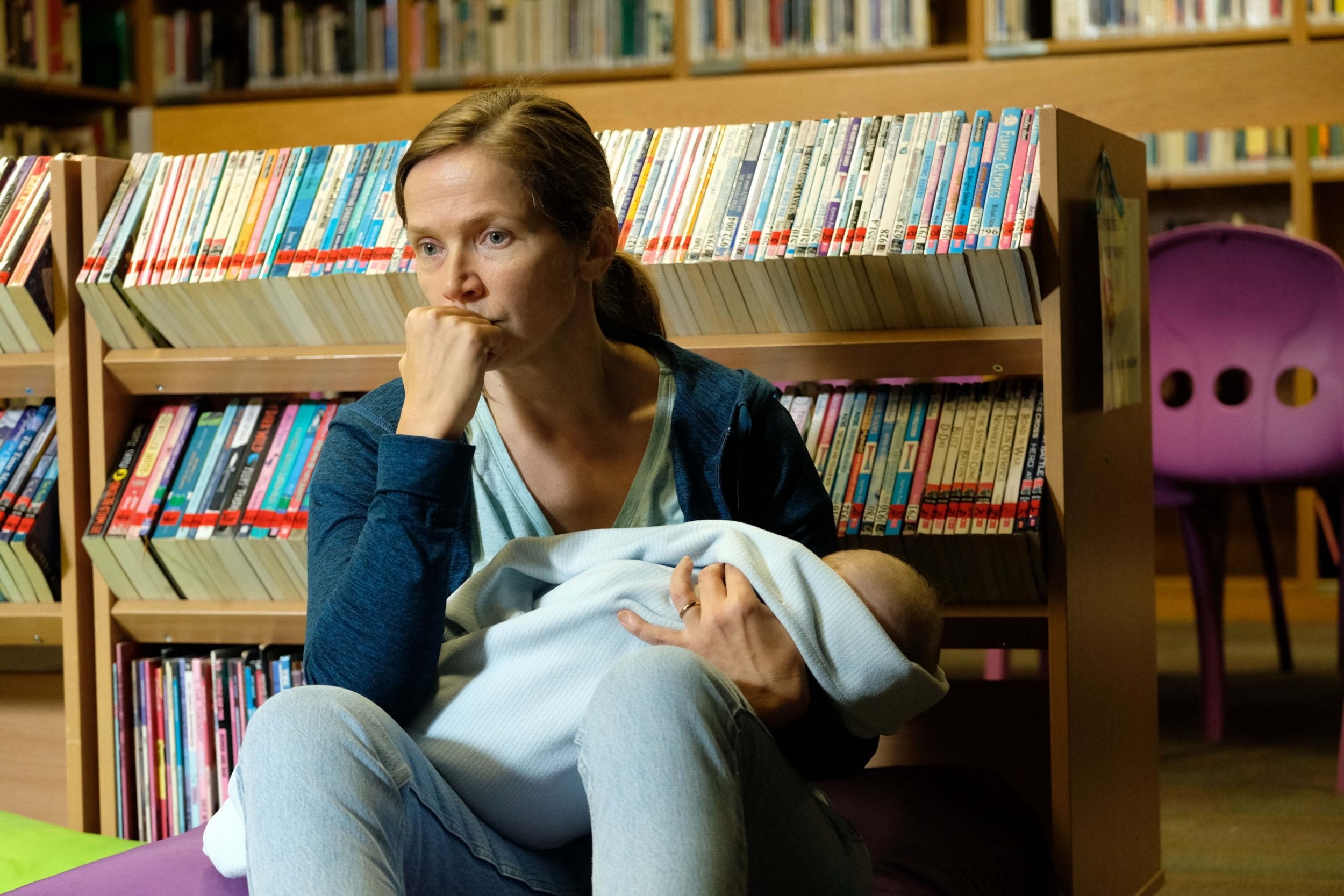There She Goes, episode one review: This depicts raising a disabled child with searing emotional honesty
The series doesn’t slot easily into any given category, such as comedy, biopic, tragicomedy or drama, but that tends to make it the more intriguing and rewarding as a result

When is it OK to disparage a child with disabilities? Or, more to the point, when is it acceptable to do so in a TV drama?
There are debates to be had and essays to be written about the use and misuse of politically correct or euphemistic language, about the status of people with disabilities, about, if you will, “political correctness gone mad” or prejudice and hate. We all have views on that. My own answer is that it is OK to have that sort of thing in drama “when it works”. And, in There She Goes (BBC Four), it works quite excruciatingly well.
It’s the story of two parents bringing up a little girl with profound learning disabilities, a chromosomal condition so rare that it hasn’t yet been given a syndromic name. Rosie, 11, is non-verbal, unruly, obsessional and occasionally violent. She is, if you’ll excuse the understatement, a bit of a handful.
This is where the pain comes from – we watch her parents grow frustrated when she simply refuses to do what they want, when she hides her poos (once, with added poignancy, in her doll’s house), when she covers herself and the kitchen in milk, when she slams her bedroom door so continually and so forcefully she excavates a hole in the wall, when she refuses to eat, refuses to sleep, when she refuses to communicate, when she refuses… well her entire existence seems devoted to finding novel channels of refusal.
She screeches. She cries. None of this is pretty to watch. Miley Locke, who is not disabled, is quite outstanding in making it such arduous viewing.
The comic element is of the dark, bleakly witty, shocking sort, with mum Emily (Jessica Hynes) and dad Simon (David Tennant) trying to find a way to cope and learn to love their difficult daughter (their older son has no disabilities). Aside from copious amounts of red wine, they do this by being frank with one another, and sometimes friends, about their neverending predicament.
Thus, Simon goes for a drink with a work colleague. She teases him a bit about becoming the archetypal “divorced dad of two” in a few years time. He – and I find this hard to type, such are its implications – corrects her banter: “divorced dad of one and a half”. Or take when Emily and Simon are watching some pop concert. Emily: “I love Simple Minds.” Simon: “Please don’t talk about Rosie like that.”
Sometimes the comedy just ebbs away and all you are left with is a searing emotional honesty. It is 1.30am and we find Emily weeping, distraught and broken: “I used to think the worst thing was losing a child but what if your child was wrong? But not wrong enough to die? I want to love her but I don’t know if I can.”
A mere formality, this, but of course Tennant and Hynes are every bit as sensitive and engaging as you’d expect in this, and work exceptionally well together. Tennant in particular is a “big” actor because of his celebrity, style and of course, sheer ability. Somehow, though, he manages to sort of downsize himself to fit into this very domestic story, and not to dominate every scene. This helps us believe that, as his character remarks, he really can be beaten up by a nine-year-old girl “with talons”. His sometimes callous lines about his daughter are uttered with a sense that he means them, but wishes that he didn’t. That’s how he helps make the script work so well.
There She Goes is written by Shaun Pye (whom you may recall as the irritatingly smug Greg Lindley-Jones in Extras) and is based on some of his family’s own experiences. The producers are Sharon Horgan and Clelia Mountford of Merman Productions. All in all, then, a formidable team, and their talents are not wasted.
They have created something that doesn’t slot easily into any given category, such as comedy, biopic, tragicomedy or drama, but that tends to make it the more intriguing and rewarding as a result. Maybe a bit like Rosie, eh?
There She Goes continues on Tuesdays at 10pm on BBC4
Join our commenting forum
Join thought-provoking conversations, follow other Independent readers and see their replies
Comments
Bookmark popover
Removed from bookmarks